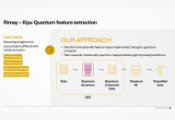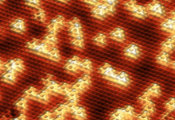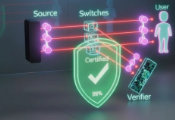NanoQT and VeriQloud Awarded EUREKA Globalstars-Japan Label to Advance Blind Quantum Computing
Tokyo, Japan & Paris, France, June 16 2025 -- Nanofiber Quantum Technologies, Inc. (NanoQT), a pioneering quantum hardware startup originating in Japan, has announced a new international research collaboration with VeriQloud, a French innovator in secure quantum communication and computing. The partnership aims to develop a scalable and secure quantum computing framework by combining NanoQT’s proprietary nanofiber cavity technology with VeriQloud’s advanced expertise in secure quantum protocols. The project has been selected for support under the EUREKA Globalstars Japan Round 3 call for projects and is co-funded by New Energy and Industrial Technology Development Organization (NEDO), Japan and Bpifrance, France.
As quantum computing moves to the cloud, protecting the privacy of delegated computations is essential. This project integrates Blind Quantum Computing (BQC) protocols into neutral-atom Quantum Processing Unit (QPU), allowing users to securely perform their computations. The team will develop a BQC-ready architecture for neutral atom platforms with nanofiber-based fast quantum network interface, and confirm its performance and security.
“BQC is one of the most impactful applications in networked QPU. Yet, a scalable and implementable hardware-centric architecture has been missing. Close collaboration between hardware and protocol design is essential, and we are very pleased to work with VeriQloud—an ideal partner to bridge this gap,” said Masashi Hirose, CEO of NanoQT.
“We’re pleased to partner with NanoQT and apply our research in blind quantum computing to neutral atom systems. Bringing blind quantum computing to emerging hardware platforms will help make secure quantum services a practical reality for end-users.” said Marc Kaplan, CEO at VeriQloud.
The collaboration is expected to yield both technical breakthroughs and foundational infrastructure for secure quantum computing. It also aims to accelerate the adoption of privacy-preserving technologies by delivering practical protocols, system architectures, and deployment-ready tools—laying the groundwork for real-world, scalable quantum services.




































